|
|
|
| Seguir @vicentgarciaedi Twittear |
|
vgesa |

|
|
- Books and works ( 140 tit.)
- Request further information
- Contact
- Club Konrad Haebler
- Menu
- What we do since 1860
- The facsimile: What and who is buying
- Museum of Printing Press
- Index
- Spanish
Phone: (+34) 96 369 15 89
(+34) 627 596 573
E-mail: Vicent García Editores, S.A.
|
The Club Konrad Haebler. A Bibliophile Society. THE WORLD´S LARGEST LIBRARIES BEGAN AS PRIVATE COLLECTIONS. Thanks to this, the works of Aristotle and Plato, Copernicus and Nebrija, Shakespeare and Cervantes have been preserved. Works that have shaped and modelled mankind. Could we imagine a city with no libraries? A University with no books? Libraries are our collective memory, the archives of our past, preserving our cultures, our history and our traditions so that generation after generation, our childrens' children can learn from these books.
BIBLIOPHILES AND COMPANIES BIBLIOPHILES. The select and age-old bibliographical societies of Paris, London, New York, Rome, Moscow, Tokyo, Buenos Aires, Mexico City or Madrid, since the XVIII and XIX centuries, gathered in their lounges the wise and learned of the time with the aim of savouring and enjoying the bibliographical treasures sought after and acquired all over the world by adventurous travellers, funded by these prestigious clubs. The writers Stevenson and Jules Verne skilfully described these scenes in their atmospheric novels. In the well stocked libraries of these cathedrals to bibliophily, the Roxburg Club of London, the Académie des Bibliophiles of Paris, or the Bibliophile Society of Boston, plans were laid for these journeys around the world, in order to obtain sought after pieces, which would later be re-edited by their members, and which are today authentic treasures fetching large sums of money in international book markets. Bibliophiles such as Richelieu, Mazarino and Colbert gave us the Louvre; Philip II the Escorial Monastery; Felipe V the Biblioteca Real of Spain; the Renaissance patrons Carlos and Lorenzo of Medici the Mediceo-Laurenziana Library; Bruce Cotton and Harley, the British Museum… Thanks to the effort of one man such as Augustus de Bracenscheweig the greatest library in Europe was assembled. Ricard de Bury, who whilst writing a tribute to books, the Philobiblion, founded the Oxford Library; or Cardenal Cisneros, founder of the Complutense de Madrid, were also great patrons of the arts and bibliophily. TODAYS EDITIONS WILL BECOME THE BIBLIOGRAPHICAL TREASURES OF THE NEXT CENTURIES. When e-books are replacing many of the reference books in our libraries, all the publishing work performed by our bibliophily society gains relevance, since these re-editions, these facsimiles, will become the bibliographical treasures of the next centuries to be sought after by future bibliophiles, who will regret not having lived in our era so as to have been able to acquire these books.
INTERNATIONAL VALUES THAT ALREADY OCCUPY A PLACE IN THE MOST PRESTIGIOUS AUCTION HOUSES LEIGHT, SOTHEBY'S, KING EVANS, CHRISTIE'S OR DURAN. We believe that our collection of facsimiles of "Incunabula and Antique Books" could and should reproduce for its members these great works of mankind, these rare treasures which are impossible to come across. This calls for serious, meticulous and precise editions, accompanied by the studies and commentaries of prestigious University professors who analyse the works and authors selected. All this without forgetting that their financial worth may, as has occurred in some of our works, reach large revaluations on the book market as true international assets. We are talking about editions which will always have a ready market, including great auctions houses such as Leight, Sotheby's, King Evans, Christie's or Duran.
AIMS OF OUR SOCIETY THE CLUB KONRAD HAEBLER.
WHY CALL IT "KONRAD HAEBLER CLUB ". Given the international nature of our society, we have endeavoured to find the name of a well-known personality in the world of bibliography and bibliophily who would serve to identify us on a worldwide scale.
He made a visit to Spain in 1889, accompanying Prince Federico Augusto; then later travelled to Portugal in 1891; he was subsequently to carry out, over the years 1897 and 1989, a "Iter Ibericum", detailed proof of which remains in Zentralblatt für Bibliothekswesen. During this journey he was mainly concerned about the history of Iberian printing. The fruitful output of this double interest emerged in the shape of his books. It is worth pointing out from among his many works concerning the history of Iberian printing the following: "Deutscher Buchdrucker in Spanien und Portugal", Zentralblatt für Bibliothekswesen, 11 (1894); The early printers of Spain and Portugal (London, 1897); Spanische und portugiesische Bücherzeichen des XV und XVI. Jarhunderts (Strassburg, 1898); Tipografía Ibérica del siglo XV (La Haya-Leipzig, 1902); Bibliografía Ibérica del siglo XV (La Haya, etc. 1903-1917); "Juan Rix de Chur: un librero alemán en Valencia en el siglo XV", Revista de Archivos, Bibliotecas y Museos, 13 (1905); "The Valencian Bible of 1478", Revue Hispanique, 21 (1909); "Zur ältesten Geschichte des Buchdrucks in Spanien. Nachträge zur Bibliografía Ibérica", Zentralblatt für Bibliothekswesen, 26 (1909); "Zur Druckertätigkeit des Alfonso Fernández de Córdoba", Zentralblatt für Bibliothekswesen, 32 (1915); Die Drucker und Verleger in Spanien und Portugal von 1501-1536 (Leipzig, 1913); or Geschichte des spanischen Frühdruckers in stammbäunmen (Leipzig, 1923) Original mastermind behind the project for a world catalogue of incunabula -the Gesamtkatalog der Wiegendruche-, his participation was subsequently not very active. The Real Academia de la Historia of Madrid named him correspondent in Dresden. Without a doubt his most definitive contribution to incunabulism appeared under the heading Typenrepertorium der Wiegendrucke (Halle, 1905-1924). The Handbuch der Inkunabelkunde (1925), translated into Spanish with the title Introducción al estudio de los incunables (Madrid, 1995), is an authorised overview, a joy to read, about the printing houses of the first century and their outputs, which has over time been on the obvious receiving end of much praise, by Alfred W. Pollard; Victor Scholderer, Frederick R. Goff, Wieland Schmidt, F. J. Norton, Philip Gaskel or Julián Martín Abad. THE BOOKS CARRY THE AUTOGRAPHED SIGNATURE OF THE "GUTENBERG PRIZE" PRINTER. The members of the Club Konrad Haebler already have numbered and limited examples in their libraries carrying the printer and notary's signature. OVER 200 UNIVERSITY LIBRARIES FROM ALL
AROUND THE WORLD OWN OUR BOOKS. The first members were from Spain, both public and private libraries from all over the country supported our initiative. We now have members spread around the world. Our aim is to achieve a maximum number of members limited by the number of books. Once this figure of 3.000 is reached worldwide, then no other member shall be admitted unless by inheritance or by purchasing membership rights from another member. There are already many members belonging to the Club Konrad Haebler, and therefore we have edited a book with the ex-libris of the first members, thereby fulfilling one of the objectives of our statutes. These ex-libris were designed one by one personalised for each member with allegorical illustrations, Latin words, the person's name, his/her initials, etc., so that the owner of the library to which it belongs is pointed out in the flyleaf of the book. Don't miss out on this unique occasion, join the club. |
Go directly to...
Facsimile - Old book
Subject categories
Codex
Facsimile
Codex
Illuminated Manuscripts
Medieval Manuscripts
Incunabula
Old books
Rare books
Leonardo da Vinci
What is a facsimile?
Who buys a facsimile?
Art
Literature
History
Humanities
Medicine
Anatomy
Science
Mathematics
Travels
Gastronomy
Subject categories, more..- IBIC
Chansonnier Montchenu
Chansonnier cordiforme
Rothschild 2973
Bucolics -Georgics - Aeneid
Virgilio
Natural History Atlas
Pomar Codex
Philip II
BEATO LIÉBANA
Incunabula
Old books
Rare books
Beatus Burgo de Osma
Apocalypse of Saint John
Gutenberg Bible
First printed book
First printing press
l Poliphilo's strife of love in a dream
Marco Polo
Twelve labours of Hercules
Travel to Holy Land
Boccaccio
Spanish grammar
Nebrija
Travels - Mandeville
Philosophy
Philosophy - Erasmus
Philosophy - Luis Vives
Literature
Literature - Calisto and Melibea
Botanics
Botanics - Fuchs
Botanics - Acosta
Navigation
Navigation - Cortés
Navigation - Medina
Riding
Gastronomy
Games
Hunting
Architecture
LEONARDO DA VINCI
Gutenberg Bible
Bibliophily - Studies - Incunabula
Commentaries - Codex
Codex Atlanticus
Design - Disegni i
Codex "A"
Codex Leicester Hammer
Quaderni di Anatomia
Quaderni Anatomia
Codex Arundel
Codex Trivulziano
Codex on the flight of birds
Lined Bible
First book
Trobes laors Verge Maria
First Spanish book
Bibliophily studies
Martín Abad
David Fallows
López Piñero
Sánchez Mariana
Briesemeister
Antoni Ferrando
Bibliophiles
Beatus of Liébana
Trionfi – Petrarca
Gutenberg Bible
Natural History Atlas
Chansonnier Montchenu
Eneida – Virgilio
Chess – Alfonso X
Atlas – Ptolomeo
Gift
ALICANTE – CASTELLÓN – VALENCIA - Crown of Aragon
Original gifts
Wedding gifts
Business gift
Retirement gift
Institutional gift
Cheap gifts
Promotional gifts
Sculpture - Gift
Graphic works - Gift
History of Valencian Community
First map Kingdonm of Valencia
Spanish Historical Novel
Furs
Consolat de mar
Repartiment
Feyts
Privilegis
Blasco Ibáñez
Our Museums
Valencian painters
Valencian sculptor
Valencian artists
Our lands (Valencian Community)
Valencian pottery
History of Valencian Medicine
Valencian Traditional Festival
Valencian gastronomy
Valencian wines
Valencian coins
Valencian herbs
Book of Valencia
Children
Spanish Historical Novel
National Print Museum of Spain
Sculptures
Graphic works
Treat of Caspe
Expulsion of crypto-Muslims
Western Schism
Bibliophile Spanish Historica
Entrance hall Print Museum
Gutenberg Printing Press
Typography Museum
Typography and Composition
Litography Museum
Offset Museum
Photography and Scanner Museum
Informatics Museum
Engraving Museum
Artistic Binding
First printed books
Illuminated codex
Esteve Edo
Llorens Poy
Adsuara
Mestre
Benlliure
Octavio Vicent
Valmitjana
Manolo Rodríguez
Arcas
Mompó
Sacramento
Antoni Miró
Ortuño
Soria
CONTACT
Publishing house
Media
Photo gallery
WANT TO MAKE A FACSIMILE
Contact
Information
Vicent García Editores
Mission
Philosophy
Origins
Ricardo J. Vicent
National Print Museum of Spain
El Puig
Books Ricardo Vicent
Club Konrad Haebler
Benefits of the bibliophile society
Press
Radio
TV - Video
Others
Press notices
Photo gallery
Printing: special jobs
Edit a facsimile.
Reproduce a document.
Vicent García Editores, S.A. - C./ Guardia Civil, 22. Torre 3ª, piso 1º, 3ª - 46020 Valencia - España - Tel.: (+34) 963 691 589 - (+34) 627 596 573 - Fax.: (+34) 961 119 020 - E-mail: Vicent García Editores, S.A.


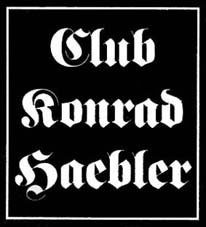
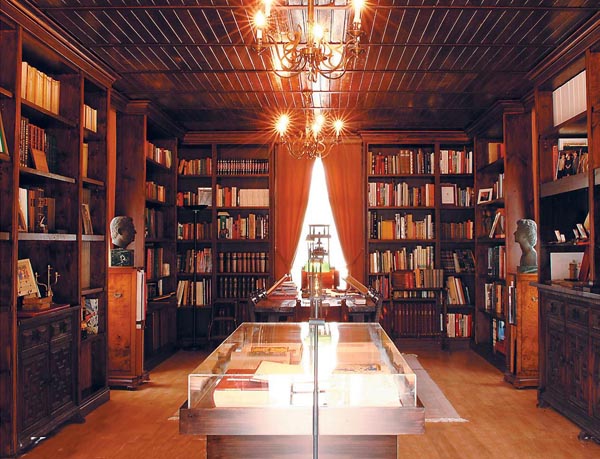
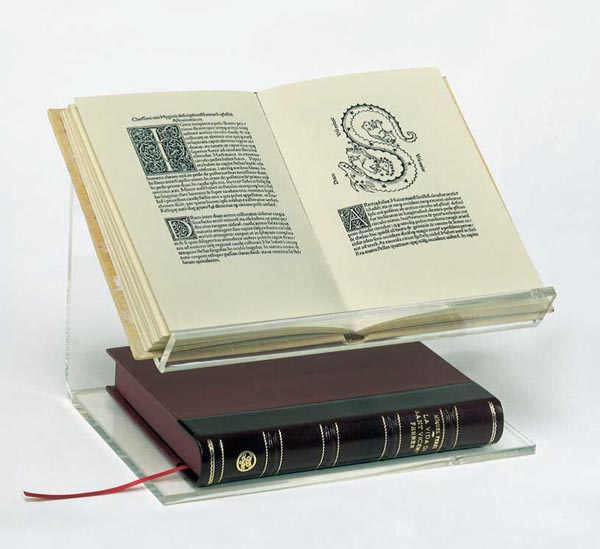

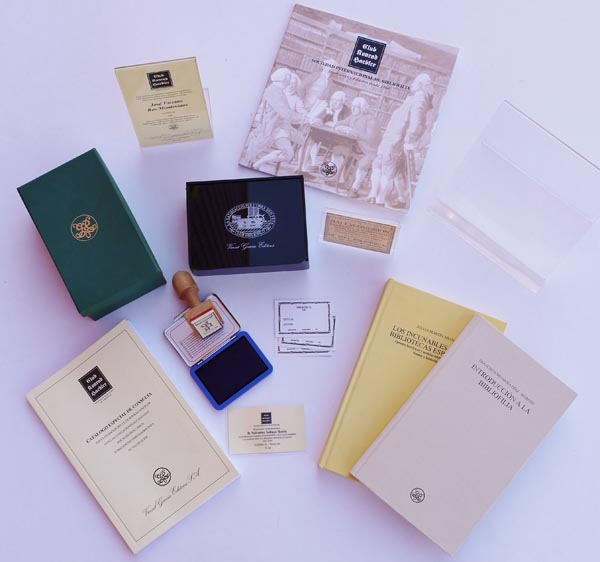
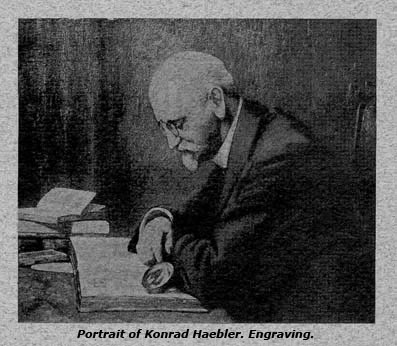 Konrad Haebler (Dresden, 1857 - Dorf Wehlen/Sachsen, 13 December
1946) was one of the most outstanding representatives of German Hispanism.
Trained at the University of Leipzig and member of staff at the Royal Library
of his birth place from 1879, he showed from early on a clear interest in Spain
and her history, in particular the economy. This is revealed in his first book
titled Der Streit Ferdinand's des Katholischen und Philipp's I um die
Regierung von Castilien 1504-1506 (Dresden, 1882
Konrad Haebler (Dresden, 1857 - Dorf Wehlen/Sachsen, 13 December
1946) was one of the most outstanding representatives of German Hispanism.
Trained at the University of Leipzig and member of staff at the Royal Library
of his birth place from 1879, he showed from early on a clear interest in Spain
and her history, in particular the economy. This is revealed in his first book
titled Der Streit Ferdinand's des Katholischen und Philipp's I um die
Regierung von Castilien 1504-1506 (Dresden, 1882